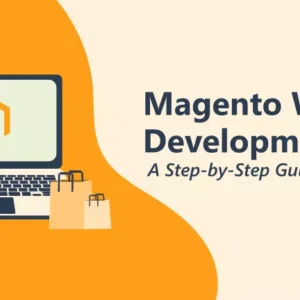VIP MANAGEMENT SERVICES: South Africa is very magento for small businesses in the world in the sense that most of its successful entrepreneurs, community leaders, and political elite are those who transitioned from non-profit organizations into self-employment. However, the challenge that most of them encounter is how to effect this transition. Some are forced to initially operate part-time, i.e. while they are employed or volunteering in other organizations in the country. In most cases they end up being ethically conflicted. Their careers are destroyed before they could achieve their objective of becoming fully self-employed. It is for this reason that I am advocating the introduction of VIP Management Services Development Programmes to these needy members of our society. This works like an incubator of professionals.
EXECUTIVE COACHING: Coaching is about a shift from the Current State of Being (CSoB) into the Future State of Being (FSoB). So, it is about transformation. Both the Current State of Being (CSoB) and the Future State of Being (FSoB) for the client must be clearly defined. There must be discomfort with the CSoB that propels the client to embark on the coaching journey. The FSoB in most cases cannot be fully attained but the client can close to it as close as it possible. One thing certain is that there will be shift away from the CSoB. The FSoB is like the shining star at the distance. The coaching sessions form part of the journey toward the Future State of Being (FSoB). This ideal future state is not necessarily achieved upon the completion of the coaching programme. This becomes the journey f life time. The coaching programme places the client on the path toward the Destiny which once achieved it becomes the client’s Legacy. This Legacy becomes the Heritage that the client will leave for the Generations that come after him/her. Coaching is therefore a way of life and it is unimaginable to live a fulfilling life without it.
Coaching evolved over the past years, having started in the US in the seventies from college sport:
• Coaching as Motivation and Personality Development intervention
• Coaching as Mentoring and Development of Potential
• Coaching as Advisory to Top Management
• Personal Coaching for private People
• Coaching for all situations
Coaching is today clearly distinct from the above previous evolutionary stages. It follows clearly defined Models and Philosophy. The Perspective, Purpose, and Processes are clearly visible in coaching. Every coach is expected to have a particular methodology they follow in their Coaching Programme.
STRATEGY DEVELOPMENT: Depending on the size of the organization, strategy development is either done in-house or an external strategy development consultant is engaged. There are a number of books written about strategy facilitation. However, there is no one universal strategy development template. Every organization has its own template, approach and strategy. Whoever facilitates the development of such strategy has to first invest time in understanding the business or receiving a thorough briefing from the management and leadership before embarking on the process of developing and formulating the strategy of such an organization. The risks associated with the strategy that does not speak to the context of the business are very high since strategies tend to be medium to long-term. So, strategy development facilitators have huge responsibility on their shoulders. They are also expected to be highly ethical in their work. They are expected to keep confidentiality and not to abuse the privilege they have in accessing strategic information.
CONSULTING: Consultants are the most innovative, creative and pragmatic practitioners, and yet individualistic in approach. It is important for the consultants to network with each other and share their expertise, methodologies, challenges and frustrations, especially if they hope to contribute to the national transformation imperatives, like supporting South Africa’s National Development Plan (NDP). They are encouraged to contribute to the good course of sharing and growing the economy and the society. Their network is there to attract the new entrants into the field to do the business of consulting, encourage mentoring of the beginners and to make themselves accessible to the industries in a relaxed and less pressurizing environment.
There are very few institutions of learning that teach Consulting in Economic Empowerment & Transformation as a standalone qualification, and yet this is one of the key components of the South African economic & political environment. Any business strategy that does not start by unpacking these two phenomena is ignorant of the realities of the South Africa of today, and it is likely to miss the opportunities that are associated with this country. The only constant in today’s society is transformation and change. The economic empowerment of the neglected sectors of the South African society is imperative for all the organizations that are committed to the growth of the country.
